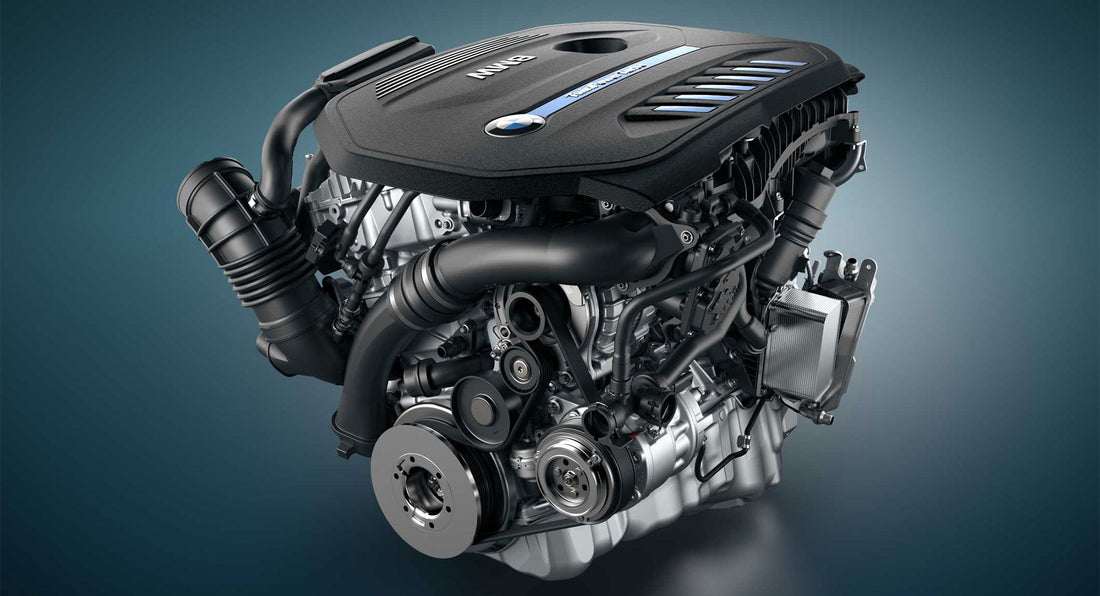BMW B58 Engine: The Powerhouse of Innovation
If you enjoyed our previous blog post about the BMW B48 engine, you'll find this deep dive into the BMW B58 engine equally fascinating. The B58 engine represents BMW's commitment to delivering power, efficiency, and reliability in a neat package. In this article, we'll explore the B58 engine in detail, examining its usage in various BMW models, its evolution over the years, reliability, common issues, tuning potential, and its pros and cons. All this is tailored to keep you informed and help optimize your search for "B58", "B58 engine", "B58 BMW engine", and "B58 engine reliability".
Introduction to the BMW B58 Engine
The BMW B58 is a turbocharged inline-six engine, part of BMW's modular family of engines which includes the three-cylinder B38 and four-cylinder B48. First introduced in 2015, it replaced the N55 and has since been a staple in BMW's lineup, recognized for its power, efficiency, and cutting-edge technology.
Models Featuring the B58 Engine
Over the years, the B58 engine has been used in a range of BMW models. These include, but are not limited to:
- BMW 340i (F30/F31/F34)
- BMW 440i (F32/F33/F36)
- BMW 540i (G30)
- BMW 740i (G11/G12)
- BMW X5 xDrive40i (G05)
- Toyota Supra (A90), a unique collaboration between BMW and Toyota.
Development and Evolution
Since its inception, the B58 engine has undergone several updates and iterations to improve its performance and efficiency. These refinements include enhanced turbocharging technology, a higher compression ratio, and the implementation of BMW's Valvetronic and Double VANOS systems, which have significantly improved engine response and efficiency.
Reliability and Common Issues
The B58 is renowned for its reliability. However, like any engine, it has its share of issues. Common problems include:
- Oil Leaks: Some B58 engines have experienced oil leaks, particularly around the oil cooler and valve cover gasket.
- Coolant Loss: Issues with the cooling system, such as leaks from the water pump or thermostat housing, have been noted.
- Fuel Injector Failures: Although not widespread, there have been instances of fuel injector malfunctions leading to engine misfires.
Despite these issues, the overall consensus among owners and experts is that the B58 is a robust and reliable engine, particularly when compared to its predecessors.
Tuning and Remapping
The B58 engine is known for its tuning potential. Enthusiasts and experts alike have found it relatively easy to remap and tune, thanks to its robust build and advanced technology. With proper tuning, significant increases in power and torque can be achieved, making it a popular choice among performance enthusiasts.
Benefits of Tuning the B58
- Increased Power and Torque: Tuning can unlock additional horsepower and torque, enhancing performance.
- Improved Throttle Response: Remapping can lead to a more responsive throttle, offering a more engaging driving experience.
- Customization: Tuning allows drivers to customize their vehicle’s performance to their liking.
Downsides of Tuning
- Warranty Concerns: Modifying the engine can void the manufacturer’s warranty.
- Potential for Increased Wear: More power can lead to increased strain on engine components.
- Fuel Consumption: Increased performance often comes with higher fuel consumption.
Benefits and Downsides of the B58 Engine
Benefits
- High Performance: The B58 offers excellent power and torque, providing an exhilarating driving experience.
- Fuel Efficiency: Despite its power, it remains relatively fuel-efficient, especially compared to older generation engines.
- Smooth Operation: Known for its smooth running and minimal vibration.
- Emissions Compliance: Meets stringent emissions standards.
Downsides
- Cost of Maintenance: As a high-performance engine, maintenance can be costly.
- Complexity: Advanced technology means repairs can be more complex and expensive.
- Weight: As an inline-six, it’s heavier than smaller four-cylinder engines.

Conclusion
The BMW B58 engine is a testament to BMW's engineering prowess, balancing power, efficiency, and reliability. Whether it's in a luxury sedan or a high-performance sports car, the B58 engine delivers an exceptional driving experience. While it has some common issues and the cost of ownership can be high, its benefits far outweigh the downsides for most enthusiasts. With its considerable tuning potential, the B58 continues to be a favorite among BMW fans and car enthusiasts worldwide.
Remember, whether you're considering a BMW model with a B58 engine or looking to tune an existing one, it's crucial to stay informed about its capabilities, limitations, and how to maintain it properly for the best experience.

